

mira
-
Content count
142 -
Joined
-
Last visited
Posts posted by mira
-
-
It looks like a Ligustrum flower that has landed on a Trichocereus.
-
This discussion is pretty depressing.
The truth is that no one here knows exactly what happened.
And Inyan frankly your comments are pretty disgusting.
Are you giving up grafting to be judge, jury, and executioner now?
QuoteNow, I'm no expert, but one might be a mistake. 800+ pictures though goes beyond mistake and into the realm of genuine interest.
It's really not that hard to imagine several scenarios where one could end up in this situation. Download a misnamed or ambiguously named archive, unpack it and realize what it is, and proceed to delete it and you too could have 800+ pictures of a criminal nature on forensic analysis of your hard drive. Or download a torrent with multiple folders and a folder containing such images.
If all they found was 800 images that were not self-produced on forensic recovery without any additional evidence of harm or another stash, I would be inclined to give anyone the benefit of the doubt.
-
 2
2
-
-
Very definitely khat based on the photos in OP.
-
 1
1
-
-
-
#25. Legend. Thanks, olive!
-
 1
1
-
-
It is really hard to beat the Hass if you can grow it in your climate. Grafting is the way to go. Avocados are easy and you get get an auto-grafting tool to save the time if you are planting out a large number.
-
Found the long lost label to the SS hybrid parent of this cross. It was: T. andalgalensis X T. grandiflorus v. crassicaulis
Edit: So full label of the progeny is: (T. andalgalensis X T. grandiflorus v. crassicaulis) X T. arboricola
-
It is working for me right now, but I have had problems in the past few days connecting.
-
I'm in as well. Thanks!
-
Any seeds left? #2
-
 1
1
-
-
I just harvested seed from a cross I made of a red-flowered clumping SS Echinopsis hybrid (forget which one exactly, but one of the parents was T. andagalensis) with Trichocereus arboricola. I have some seed available for trade and for people who will definitely grow them out.
-
I can send fresh or perhaps freshly dried Zanthoxylum hirsutum if you are interested.
-
Some very generous members responded to my request. Thank you, all.
-
You probably aren't contacting truly wholesale operations if they'll even talk to you when they find out you don't have a business license. It's that sort of place that you want to contact once you have a business license. Then you can buy Trichocereus in bulk and quite cheap. Even in the wholesale nursery trade TBMs for example do get snatched up as soon as the lists are published though.
-
 1
1
-
-
-
I found these lophophora forgotten in a cardboard box for over a year. Most of them look really bad, and I am not certain the best way to save them. I hope the more experienced hands are willing to lend an opinion on the best way to save these.
This was jourdania graft whose stock rotted out from under it. No rot on the scion, but it doesn't look good due to the medusa like etiolation:
This is a willamsii:
This is a L. willamsii too:
This koehresii while ugly doesn't look too bad. Plant, let it plump up, and cut? How deep would you plant this?
This fricii looks like it is in the best shape out of all of them. I think it's simply a matter of getting it back in soil
Not sure what this is exactly. Either a koehresii or willamsii:
-
 2
2
-
-
I'm in search of some fresh Catha edulis seeds from 2013/2014. If you have some for trade/sale, please send me a PM.
-
Mira, Tripsis, why would either of you think that community gardens pose a special or enhanced threat over normal home gardens of the kind which require a specific anti-community gardens response?
Like tripsis clarified, neither of us stated anything about community gardens posing some sort of special risk. I was not arguing the merits of community vs. home gardens. I simply mentioned that in the US (where biosecurity is more lax) that similar concerns have been raised for years about home citrus gardens serving as pest reservoirs and even worse the source of introductions of new plant diseases and pests due to illegal importation.
-
 1
1
-
-
The Florida citrus industry has been after dooryard (i.e. home) citrus for a long time for similar concerns. I don't think it's totally unfounded given the spread of the asian citrus psyllid, citrus greening, and citrus leaf miners especially since gardeners do illegally import plants... sometimes with reckless abandon.
-
What makes you think they're in San Diego?
The Home splash screen says California Cactus, which then immediately scrolls to the right to land on a pic of a trich seedling, and as EG says they appear to be a seed only site.
a whois of sanpedrocactus.com
The whois is worthless since it is just the information of a domain name registrar. Lots of registrars offer domain name information shielding.
Their facebook, youtube, and etsy accounts under the same name/linked all list San Diego, CA. I'd trust that versus the whois information of their domain name registrar.
-
cool but technically not rape ;)
Snowfella, do you use groundcover?
No not rape. Due to the relative size of the flower, the little thief bees are stealing all the semen while not ensuring and indeed preventing a fertilization event. It's more like some flying ants sneaking into your sweet-smelling woman's huge vagina through side gaps mid-coitus and stealing all of your semen from your tip as you ejaculate in order to feed their young thus preventing your lady friend from getting pregnant. Sounds terrifying.
-
 1
1
-
-
Yes, they are one and the same.
-
However, he failed to submit a single herbarium specimen, therefore none of his work could be confirmed, even if someone wanted to give him the benefit of the doubt.I've been meaning to respond this this for awhile and now that you have reposted it I will.
While perhaps the criticism of Backeberg is warranted, making herbarium collections of the Cactaceae especially large columnar specimens is to say the least a bitch. Plus traditional herbarium collections provide us with very little useful information especially for deciphering a clade as complex as Echinopsis.
These are so helpful for example:
Not!
No point in trashing someone without formal education who has long been dead. So what if he was wrong? We know better and science has moved on. Without collectors and people at least trying to push the boundary we wouldn't be where we are.
-
I am not familiar with the state of education or the job market in Australia, but I imagine it isn't too different than the US (though maybe it's closer to the system in the UK) so I will give you my perspective and hopefully you can learn from my experience and of those who I have mentored.
I would hold off on choosing a major if you can unless there is a tangible benefit. Take the widest variety of classes in what you think you are interested in and see what you find absolutely fascinating. Maybe it's anthropology, maybe it's archaeology, maybe it's botany, but you can't know until you are truly immersed in it. Echoing some sentiments above, choosing a major which you happily study in your own free time because you think it is that awesome makes the whole college experience a lot easier.
Some people argue that major choice is not important and that you should chose what you love. I understand this to some degree, but at least anything in the US with the word engineering in it has much better job prospects than a major without. For example, chemistry vs. chemical engineering. If you graduate with a B.S. in the former, then you will be making 1/2 of what someone who took a little more rigorous version of calculus and physics and a few extra courses will be straight out of college. In terms of anthropology and archaeology, none of the people I know who studied anthropology (including many at the graduate level) are currently employed as anthropologists with the exception of the one who went to work for a 3-letter intelligence agency. Likewise with archaeology, I know a single person who is still employed in that field, and I was making more as an intern in college (no not at Google) than he is now. Not that money is the end all be all, but it does make a difference to most. Since you are leaving good money to go back to school, I take it that your time/happiness/well-being is more valuable than money. That's how it should be. Just be aware of the realistic job prospects--don't just listen to advisers/professional associations--of a potential major so you don't end up disappointed.
Given your interests, I would suggest thinking about majoring in geology or some sort of other degree where you could get GIS certified easily. GIS is heavily used in all three disciplines you mentioned and many of the fun field work and travel around the world jobs in those disciplines require GIS certification and experience. Plus you could always go work for the oil industry with such a certification not to mention a geology degree. The geologists I know who work for oil travel around the world for oil exploration and love it what they get paid to do--rather handsomely I might add.
Those who argue that it is not important (e.g. Cal Newport of the Study Hacks blog - some of his best-of might be worth a read) argue that university is a time to be awesome, interact with the thought-leaders in the fields you are interested in, job shadow, hone time-management and other skills necessary for success, pursue your passions, and produce a "portfolio" of work that will convince people to give you a job. In other words, they argue that your degree is really just a piece of paper stating you managed to get through college and what really matters is what you do outside of the formal curriculum. Of course you need to do well academically (but you don't need perfect grades), but with some hard work and good time management you can find the time to do a lot of very impressive stuff like starting a business, doing research, starting a non-profit, etc. You should be able to do very well with ~35-55 hr/wk of actual work including class time. That leaves a ton of time for other pursuits. Use it wisely and do not squander it like most people in uni. I think there is a lot to be said for this idea. Very very few people treat university this way. I definitely did not nor did most people I knew, but the students and friends I had who did follow this advice are doing extremely well for themselves now. I think it isn't necessary in an engineering field, but if you are studying anything else like say anthropology, archaeology, or botany then I would strive to treat uni this way. I wish someone had impressed this idea upon me way back when.
On that note, at least in the US, one of the best things one can do to ensure placement into a good job after graduation is to take advantage of as many internships and coops as possible. Maybe you could intern or work for the Australian equivalent of the Smithsonian (or maybe the Smithsonian itself) for course credit and maybe even make money on top of that. Not only is it good experience and exposure to what you are interested in, but you also add some great contacts to your professional/academic network.
Double majoring is doable and minoring in botany is very doable as an anthropology major (or visa versa). There are no problems here. One thing I wish I had had the balls to do is take advantage of my universities progressive curriculum choices and created my own ethno/economic botany major. It would have been kind of a pain in the ass involving meetings with deans and professors and a few papers outlining the benefit of this custom interdisciplinary major, but on the flip side I would have had a lot more interaction with people who could have helped me find good summer opportunities and/or jobs. Not sure if this is a possibility in Australia, but if it is I would strongly encourage creating your own interdisciplinary major if there is not a major which matches your interests directly. It's good experience anyway. A lot of really interesting careers like that of an ethnobotanist require you to cut your own trail anyway. Might as well start young.
As for returning back after a long educational gap, you likely feel a bit slow on the uptake or lost at first. That's okay; it's natural to feel rusty when you are starting back up again. Keep faith in the fact that you will adjust and it will become easier as time goes on. Socially you will probably feel out-of-place, but as someone stated above don't sweat it. Do you own thing and as long as you don't make a big deal about your age it shouldn't be a problem. As an older person with "real-world" experience, you have a tremendous advantage. A lot of the petty nonsense that consumes the emotions and thoughts of your younger peers will seem laughable to you so you will be less distracted. You also know the value of hard work, and I imagine that uni even with outside pursuits will feel very low-key most of the time. Be humble, be nice, and try to put yourself in other people's shoes. It goes a long way in uni (not to mention the world), but you already know that. Watch out for drugs, alcohol, and mental health problems. For whatever reason university is full of people with problems with 1-3 of them. Easy to slip to get caught up in it if you are not careful, but most universities have counseling services you can take advantage of if need be. Don't delay seeking help for anything whether it is help with a class or help with a life issue--you are old enough to know avoiding problems is counter productive.
Learn and master a foreign language and study abroad if possible. I'd argue Spanish is the way to go given your interests in archaeology, anthropology, and botany/ethnobotany. While there are more Mandarin speakers in the world, Spanish gives you access to a much wider section of the world (Spain + nearly all of Latin America). French (also gives you access to a large number of countries) or German (for historical texts/resources only) would be a close second. Ultimately the language depends on your interests, but do actually become fluent in one.
Study hard, live a balanced lifestyle, take advantage of this amazing opportunity to study whatever you like, have fun, take calculated risks, enjoy the young tail, and strive to be awesome.
Good luck!
-
 1
1
-
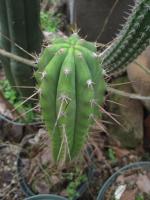
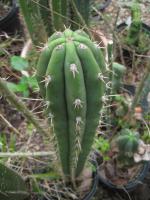
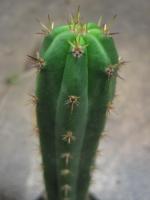
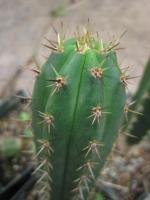
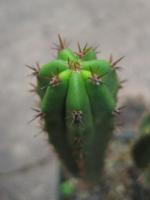
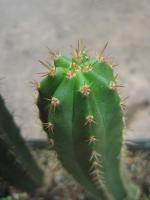
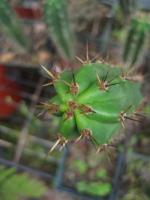
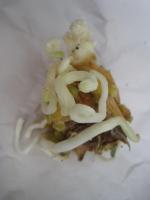
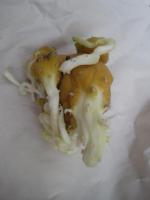
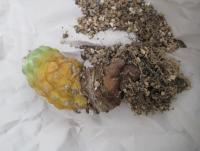
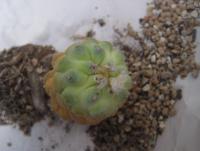
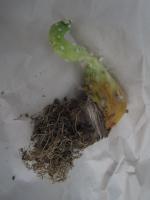
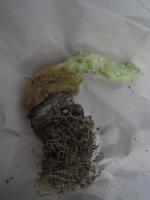

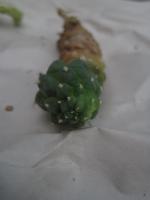
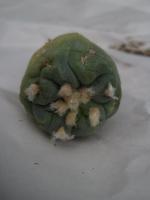
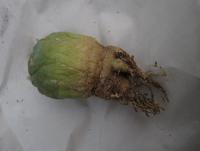
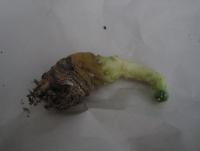
The Nook is rebooting
in News & Notices
Posted
Is the old site still around until the 15th? It looked like it was gone.